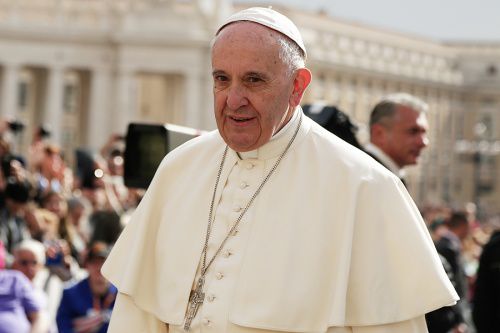In a video message sent Wednesday to a gathering of advocates for abolition of the death penalty, Pope Francis welcomed their efforts as a way to promote the right to life of all persons.
“Nowadays the death penalty is unacceptable, however grave the crime of the convicted person,” the Pope said in his June 22 message to the Sixth World Congress against the Death Penalty, which is being held in Oslo this week. More than 1,000 people are in attendance from governments, international organizations, and society.
Capital punishment “is an offence to the inviolability of life and to the dignity of the human person,” Pope Francis continued. “It likewise contradicts God’s plan for individuals and society, and his merciful justice.”
He expressed his “personal appreciation” to the participants for their “commitment to a world free of the death penalty.”
That “public opinion is manifesting a growing opposition to the death penalty, even as a means of legitimate social defence,” he called a “sign of hope.”
In addition to being offensive to the inviolability of human life, Pope Francis said that the death penalty is not “consonant with any just purpose of punishment.”
“It does not render justice to victims, but instead fosters vengeance. The commandment 'Thou shalt not kill' has absolute value and applies both to the innocent and to the guilty.”
Recalling the Jubilee of Mercy being celebrated currently, the Roman Pontiff said the year is “an auspicious occasion for promoting worldwide ever more evolved forms of respect for the life and dignity of each person.”
“It must not be forgotten that the inviolable and God-given right to life also belongs to the criminal,” he exhorted.
In addition to calling for an end to capital punishment, Pope Francis called on the participants to work for the improvement of prison conditions “so that they fully respect the human dignity of those incarcerated.”
He reiterated that rendering justice “does not mean seeking punishment for its own sake, but ensuring that the basic purpose of all punishment is the rehabilitation of the offender.”
The question of justice should be answered “within the larger framework of a system of penal justice open to the possibility of the guilty party’s reinsertion in society,” he said.
“There is no fitting punishment without hope! Punishment for its own sake, without room for hope, is a form of torture, not of punishment.”
Pope Francis' video message echoed earlier calls he has made for an end to the use of the death penalty. His immediate predecessors, Benedict XVI and St. John Paul II, also spoke out against its use in modern society.
In a March 2015 letter to the president of the International Commission against the Death Penalty, Francis went so far as to say that “life imprisonment, as well as those sentences which, due to their duration, render it impossible for the condemned to plan a future in freedom, may be considered hidden death sentences, because with them the guilty party is not only deprived of his/her freedom, but insidiously deprived of hope."
The Catechism of the Catholic Church teaches that the death penalty may be used “if this is the only possible way of effectively defending human lives against the unjust aggressor.” However, it adds, such cases today “are very rare, if not practically nonexistent.”

